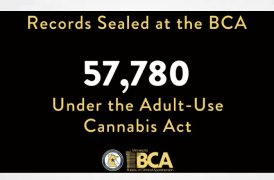Authored By: William F. McDevitt, Esq.
The approach of fall presents conflicts for many people. Returning from vacations, preparing for the new school year, getting ready for the legislature to return and completing third-quarter projects tend to pull us in multiple directions at once. Perhaps these forces are responsible for some of the end-of-summer developments that may affect the cannabis industry.
New Jersey Attorney General Revisits Allowing Cannabis Prosecutions
On July 19, 2018, Jersey City’s chief municipal prosecutor, Jake Hudnut, largely decriminalized cannabis possession in that jurisdiction by reducing five common offenses to noncriminal dispositions. Thereafter, on July 24, 2018, New Jersey Attorney General Gurbir Grewal directed other municipal governments to stay or adjourn prosecutions for cannabis possession at least until September. The adjournment was viewed by many observers as a further indication that the State of New Jersey would likely decriminalize cannabis and possibly allow recreational or adult-use sales in the next legislative session.
In an end-of-summer reversal, on August 29, 2018, Attorney General Grewal issued a statement opining that local municipalities, such as Jersey City, do not possess the legal authority to decriminalize marijuana. Grewal advised municipal prosecutors that they may proceed with possession cases, but observed that prosecutors should “strive to ensure that individual justice is done in individual cases” by considering how a possession conviction may impact the defendant’s employment, housing, schooling and other life activities. It is presently unclear whether this announcement in any way reflects the mood of the New Jersey legislature, which is anticipated to review a legalization bill this September.
Pennsylvania Department of Health Issues Revised Guidelines of Clinical Registrants
At the beginning of summer, Pennsylvania’s Commonwealth Court enjoined the Department of Health (DOH) from issuing licenses to Clinical Registrants (CRs). The 2016 Medical Marijuana Act (MMA) allowed CRs to hold licenses to grow, process and dispense cannabis in connection with medical research conducted by Academic Clinical Research Centers (ACRCs). CRs also were allowed to dispense cannabis outside of medical research studies to any patient with a DOH-issued ID card. The court in AES Compassionate Care, LLC v. Rachel L. Levine, 233 MD 2018, found that an injunction was warranted for various reasons, including the fact that CRs are allowed to operate twice the number of dispensaries as “commercial” cannabis entities.
In response to the decision in AES, Governor Tom Wolf signed the “Watson Amendment” to the MMA, which contains a statement emphasizing the Commonwealth’s commitment to medical research involving cannabis. The amendment increases the DOH’s role in the approval of CRs, but still requires CR applicants to contract with ACRCs prior to DOH review. The Commonwealth Court found this pre-contract requirement troubling, observing ACRCs were essentially pre-regulating potential entities without DOH oversight. The Watson Amendment also failed to address the Commonwealth Court’s concern that neither the MMA nor the CR regulations require CRs to primarily engage in medical research; prior regulations allowed CRs to devote up to 92 percent of their operations to non-research activities.
Now, at the end of the summer, the DOH issued new CR regulations on August 18, 2018. The new regulations include provisions for Research Approval Committees (RACs) to work with previously referenced Institutional Review Boards (IRBs) to approve protocols for “research projects and studies,” a newly defined term in the regulations. The DOH is not afforded any additional oversight over RACs or IRBs, which are overseen by the ACRCs related to medical schools. Moreover, the minimal requirements for RACs and IRBs remain unchanged from the prior regulations.
There are a number of confusing provisions regarding the CRs’ ability to participate in “commercial” sales. CRs still are allowed to dispense medical cannabis to any patient holding a valid ID card, but this provision was moved from the regulation titled “Limitation on permits” to the section named “Clinical registrants generally.” The limitations on CRs now reference the “dispensing of medical marijuana for the purpose of conducting research,” but do not limit dispensing to research studies. There are numerous provisions that require a prospective CR to complete the applications for commercial grower/processor and dispensary licenses and state that they possess the same rights as commercial licensees, but it is unclear whether this simply splits a CR application into two parts or implements an additional requirement.
The newly proposed regulations do not require CRs to advance medical research over commercial operations. A change to §1211.36 allows CRs to sell or exchange seeds, plants and products with other grower processors regardless of whether that sale is for the purpose of conducting research. CRs can only sell products to commercial dispensaries with the approval of the DOH, but are not required to seek authorization to sell to other CRs.
Overall, the new regulations do not implement substantive changes nor do they address all of the issues that led to the issuance of an injunction in AES. Despite the absence of real change, on August 25, 2018, the DOH announced that it would release new CR applications on September 6, 2018, which require submission by November 8, 2018. The applications are limited to eight (8) prospective CRs that have entered into contracts with ACRCs and do not involve a competitive process.
About the Author
William F. McDevitt is a partner in the Philadelphia office of national law firm Wilson Elser, where he is a member of the firm’s Cannabis Law practice. He can be reached at william.mcdevitt@wilsonelser.com.
















